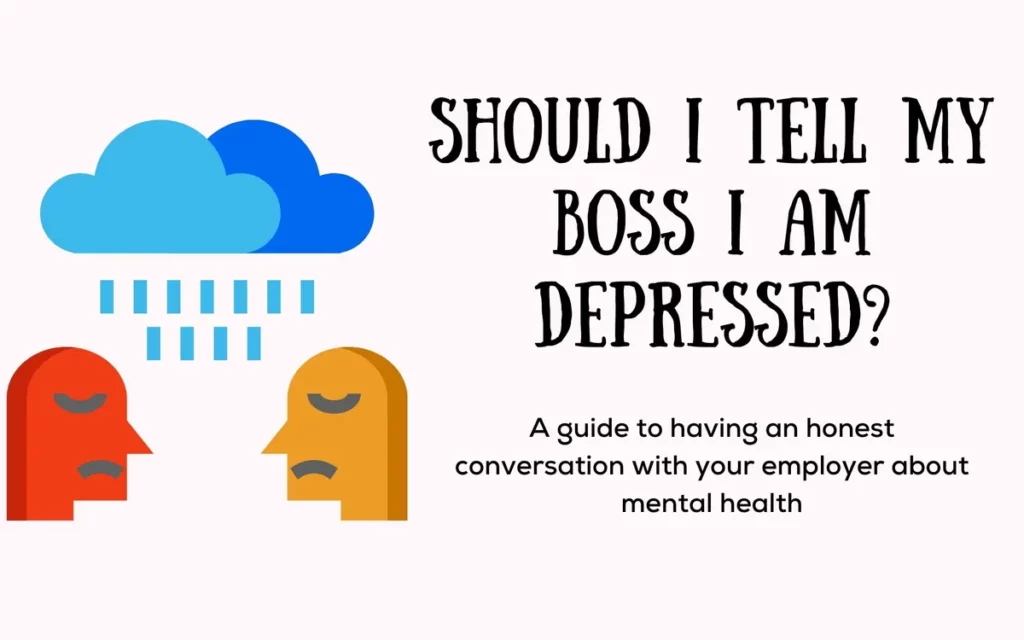Unlike physical health ailments, mental health issues such as depression usually go unnoticed for obvious reasons – the naked eye can’t see them. Sometimes there are specific visual cues that show when we are going through a mentally difficult time – like appearing withdrawn, agitated or even having a teary breakdown. However, most of the time, there are no external signs to show that we are struggling to maintain a tough exterior.
The only way we can ever come to know about how someone is feeling inside is by talking to them. However, for many of us, our mental health is a highly guarded and profoundly private part of our lives and so opening up to someone about it is no cakewalk. Instead, we tend to put up a façade to show that everything is fine, especially in a work environment.
The stigma and taboo around depression often display confessing to suffering from it as a sign of weakness. But it is one of the greatest forms of strength as showing your weakness makes you a strong person.
Work constitutes an integral part of our lives. On average, we usually work up to 40 hours per week. But no matter how passionate we may be about our job, we will have bad days at work.
Many even might be dealing with depression at work. Just like none of us is immune from physical illnesses; similarly, none of us is immune from falling prey to ill mental health.
Yet, many of us aren’t comfortable with the idea of discussing our mental health with our bosses. The harsh reality remains that not every boss will be forthcoming in supporting their employees through this phase. Therefore, it’s the relationship you have with your boss,s which will determine the best way for you to talk to them.
How to Approach the Topic
Work-related depression isn’t an uncommon phenomenon. Being frank and open about your mental health can create an honest environment around you. We often tend to feel that depression is an embarrassing personal issue rather than take it as a legitimate medical condition. If you’re somebody struggling with depression, you need to talk about it with your boss/senior at work.
Some helpful steps in this direction are:
- Steer the conversation towards how your depression may be affecting your work and productivity, rather than only focusing on how you feel. This way, you and your boss can think of improving the situation.
- You decide how much of your problem you would like to disclose. You can be either completely honest and open up or keep the majority of your situation to yourself – it’s entirely up to you to decide. Sometimes a person may be too depressed to work. In such cases, the boss could reach out to a professional therapist for help on behalf of the distressed employee.
- Avoid worrying about the stigma and discrimination attached to depression. An understanding employer would recognise the inherent importance of discussing mental and physical well-being in the workplace and would take concrete positive steps for employees seeking help at work.
- Sometimes, we might assume that talking to our boss will not work in our favour, because they might not be very receptive or empathetic towards our condition. In such a case, you may seek assistance from a mediator.
- Check what your company has to offer for mental wellbeing. Several companies have now started heavily investing in their employees’ mental health. This could include either free phone counselling or in-person therapy. It’s advisable to see what they proffer because that might help you a huge deal.
To sum it up:
By having an honest and straightforward conversation with your boss and looping them in your mental health status, you can start making favourable changes that will benefit you in the longer run.
In case you’re stressed about your boss’s reaction to your disclosure, have a professional therapist role-play the conversation with you which you expect to have with your employer. This will prepare you to talk to your employer about your mental health. You shouldn’t feel ashamed for being depressed at work; rather own up to it so that you can work to rectify it and be healthy and happy in your career.
If there’s anything you need help with, talk to India’s top specialists on docvita.com.
